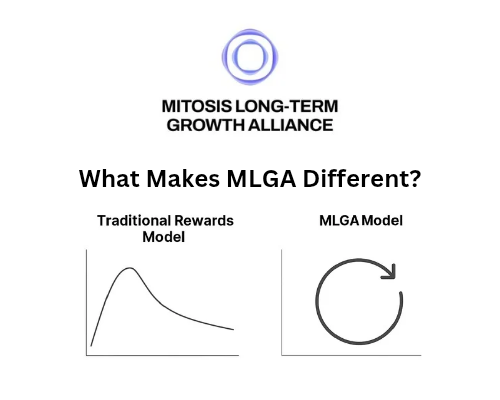🔵 Polyhedra Network and $ZKJ: Scaling the Web3 Future with Zero-Knowledge Infrastructure
In the fast-evolving zero-knowledge landscape, Polyhedra Network stands out as a powerhouse building cutting-edge zk infrastructure for interoperability, scalability, and privacy. At the heart of its ecosystem lies the $ZKJ token — the native utility and governance asset that fuels the network’s mission.
Imagine that Polyhedra utilizes Mitosis miAssets or maAssets for cross-chain transfers.
Follow Mitosis on X for news and updates!
Let’s break down what Polyhedra is building, how $ZKJ fits into the picture, and why this project is worth watching closely.
🧠 What Is Polyhedra Network?
Polyhedra Network is a zero-knowledge infrastructure protocol focused on building scalable and secure cross-chain solutions. It enables trustless interoperability and zk-based infrastructure services across major chains through advanced cryptographic tools.
Their standout feature? Polyhedra uses zkSNARKs and zkBridge technology to prove state and message correctness between blockchains — without requiring trust in centralized relayers or multisigs.
🛠️ Key Products in the Polyhedra Ecosystem
1. 🔗 zkBridge
Polyhedra’s flagship product: a zero-knowledge-based cross-chain messaging protocol. It enables light client verificationusing zkSNARKs, making bridges more secure and efficient.
- Supported Chains: Ethereum, BNB Chain, Polygon, Avalanche, Scroll, Linea, and many more.
- Use Case: Cross-chain transfers, NFT bridging, oracle relays, and messaging.
2. 🧬 zkDID (Decentralized Identity)
A privacy-preserving identity system using zk proofs to verify credentials without exposing data.
- Think: Verifying you’re over 18 without revealing your birthday.
- Use Case: On-chain KYC, gaming, voting, and more.
3. 🧮 zkLightClient
A generalized zk light client protocol that enables any blockchain to verify another chain’s state with high efficiency.
- Useful for: trustless cross-chain apps, decentralized oracles, and secure interop.
💠 $ZKJ Token: Utility and Role
$ZKJ is the native token of the Polyhedra ecosystem and powers the following:
| Utility | Description |
|---|---|
| Gas Fees | Pay for zkBridge and zkDID operations across chains |
| Staking & Incentives | Secure the network, participate in consensus and validation |
| Governance | Vote on protocol upgrades, fees, and treasury use |
| Access to zk Services | Developers may need $ZKJ to access API calls or infrastructure tooling |
🌉 Why Polyhedra and $ZKJ Matter
In a world moving toward modular blockchains, the need for secure, scalable, and efficient cross-chain infrastructureis critical. Polyhedra delivers this via:
- ZK-first design: No need to trust bridges — just verify.
- Speed: Polyhedra’s zkSNARK-based bridges are fast and light.
- Composability: Compatible with EVM and non-EVM chains alike.
In short: Polyhedra aims to be the zk-router of Web3 — routing identity, messages, and data with mathematical proof.
🚀 Recent Highlights
- ✅ Integrated with Linea, Mantle, zkSync Era, Scroll, and more.
- 💥 Polyhedra’s zkBridge is live and already moving assets and messages cross-chain.
- 📈 $ZKJ token launched via Binance Launchpool in 2024, gaining significant early traction.
🔮 What's Next?
Polyhedra is building toward a fully decentralized zkBridge protocol, onboarding new partners, and expanding use cases for zkID, NFT bridging, and oracle verification.
With the $ZKJ token at the center of this infrastructure stack, early believers are betting on Polyhedra to become the Internet's zero-knowledge backbone.
TL;DR
- Polyhedra Network is a zk infrastructure protocol focused on interoperability and privacy.
- $ZKJ is its native token used for gas, governance, staking, and access.
- Flagship products: zkBridge, zkDID, zkLightClient.
- It’s solving a huge pain point: trustless cross-chain communication using zk-proofs.

Comments ()